Are you ready to secure your home or business with a fire alarm system? A properly installed and maintained system can be the essential first line of defense against hazardous situations. Understanding how to wire a fire alarm system is essential in order to maximize its most important features and provide the ultimate protection for you, your property, and your belongings. However, it can seem like a daunting process at first glance; let’s get started on finding out the basics of wiring up your own fire alarm system!
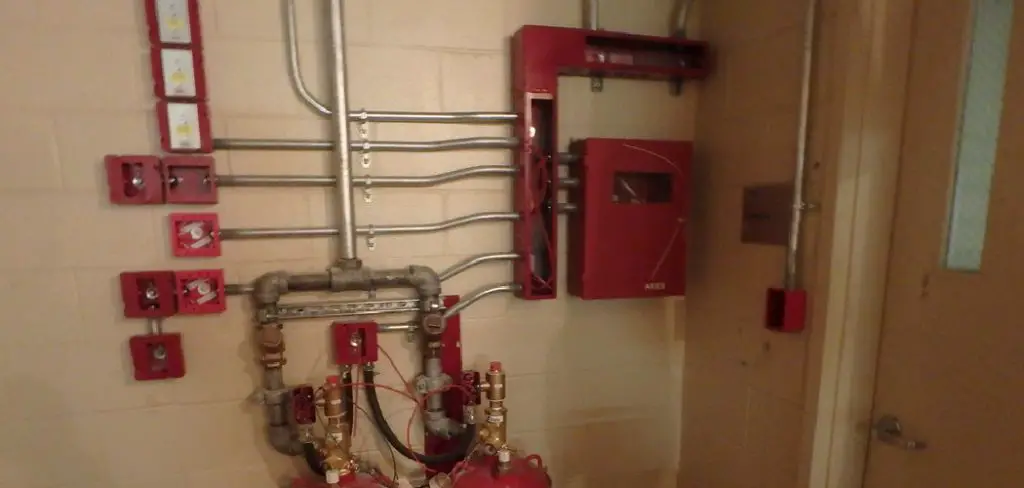
Knowing how to wire fire alarm system is an important skill for both home and business owners alike. It’s essential to provide your family or staff with the protection they need in case of a fire breakout. Having properly wired fire alarms in place can save lives, minimize property damage, and reduce stress during such an unfortunate event. In this blog post, we will discuss the process of correctly and safely wiring a fire alarm system to ensure that you’re able to keep yourself and those around you safe from harm when it matters most!
Why May You Want to Wire Fire Alarm System?
1 . To Ensure Your Home Is Safe
Wiring your home fire alarm system can help to ensure the safety of your family and property. A correctly wired fire alarm system will detect the presence of smoke or heat in a room, triggering an audible alert that alerts you and others of potential danger. This could be lifesaving in the event of a house fire and provides much-needed peace of mind.
2 . Increasing Your Home’s Value
Having a correctly wired fire alarm system installed in your home can also increase its value. This is particularly true if you plan on selling or renting it out soon, as potential buyers and tenants will be reassured by the presence of such an essential safety feature. Additionally, some cities and states may require a household to have a functioning fire alarm system in order for it to pass inspection.
3 . Professional Installation Is Highly Recommended
Though you may be able to wire your own fire alarm system, professional installation is highly recommended. This is because an experienced technician will be better equipped to identify potential hazards and make sure that the wiring is done correctly and safely. Additionally, a professional will be more familiar with local building codes and regulations regarding the installation of fire alarm systems, which may vary from place to place.
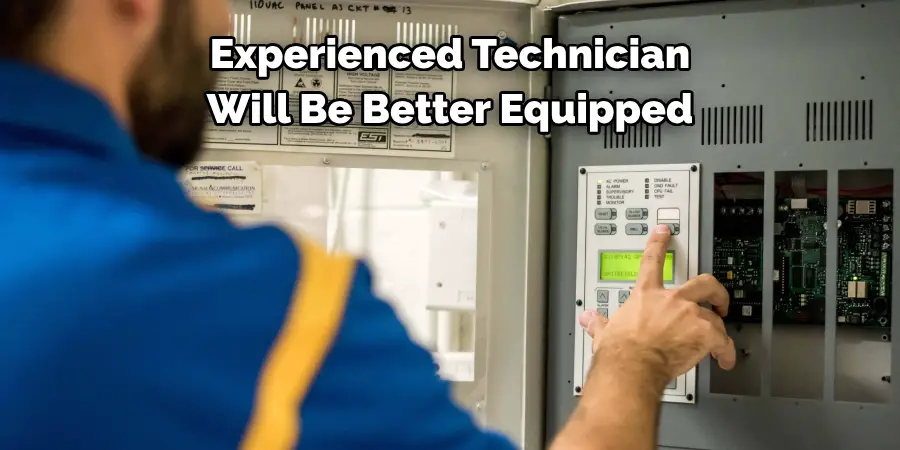
How to Wire Fire Alarm System in 5 Easy Steps
Step 1: Gather Necessary Tools and Materials
Before beginning the wiring process, ensure you have all the necessary tools and materials available. This may include wire strippers, crimp connectors, a voltmeter, fire alarm control panel, smoke detectors, and more. Make sure that all your materials are up to code and meet local building regulations.
Step 2: Calculate the Amount of Wire Needed
Next, measure the distances between each smoke detector and the fire alarm control panel, accounting for any potential obstacles in the way. This will help you calculate how much wire you will need for the entire system.
Step 3: Install Smoke Detectors
After you have gathered all the necessary tools and materials, begin to install the smoke detectors. First, mount each detector in its designated spot according to your blueprint and make sure that it is secure. Then, connect the wiring from each detector to the fire alarm control panel with crimp connectors.
Step 4: Test for Proper Functioning
Once you have finished installing the wiring from all of the detectors, it’s time to test that they are functioning properly. This can be done using a voltmeter. Place one lead of the voltmeter on each terminal of the wiring and see if the voltage reading is within an acceptable range.
Step 5: Install Fire Alarm Control Panel
The last step in wiring your fire alarm system is installing the fire alarm control panel. This usually requires drilling holes in the wall and mounting the panel securely to it. Then, connect all of the wiring from the smoke detectors to the appropriate terminals on the panel. Finally, turn on the power supply and test that your system is working correctly by triggering one of the detectors.
Some Extra Tips to Wire Fire Alarm System
1 . Always Use the Right Type of Wires
When wiring a fire alarm system, make sure to use the correct type of wires. The most commonly used wire types are FPL (fire protective lining) and CL2P (communications-level 2 plenum). These wires offer better protection against heat, smoke, and other elements associated with fires.
2 . Install Smoke and Heat Detectors
Smoke and heat detectors are essential for any fire alarm system. They will detect the presence of smoke or extreme heat, which can be an indication of a potential fire. When installing these detectors, make sure to use the right wiring that is consistent with the manufacturer’s instructions.
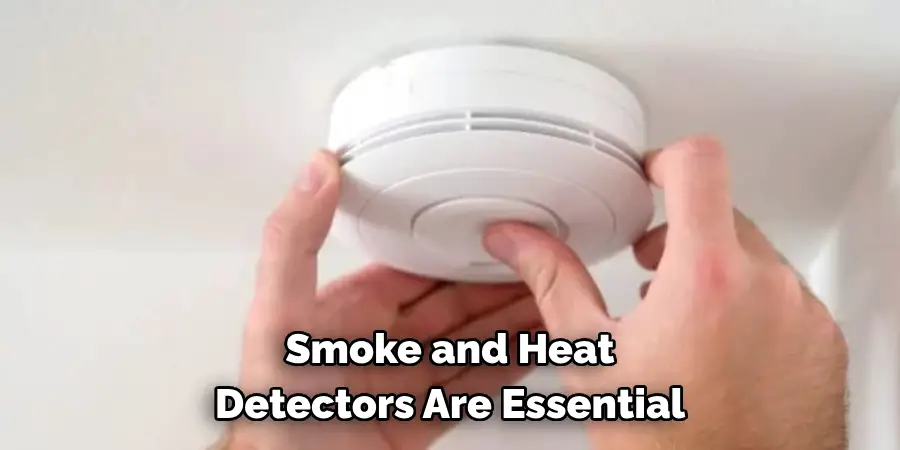
3 . Label All Wires Appropriately
To make troubleshooting easier, be sure to label all the wires used in your fire alarm system. This will help you easily identify each one and pinpoint any issues that might arise. It is also important to note the wire gauge when wiring a fire alarm system as different gauges are required for certain applications.
4 . Test Your Fire Alarm System Regularly
To ensure the effective operation of your fire alarm system, it is important to test it regularly. You can do this by checking all the connections and making sure everything is working correctly. If there are any issues, make sure to take immediate action to fix them before they cause further problems. Additionally, you should also perform a full system test at least once every year. This will ensure your fire alarm system is working optimally and can detect potential fires quickly.
5 . Follow All Local Regulations
Before you begin wiring a fire alarm system, make sure to check all local regulations first. Different areas have different laws and requirements regarding fire alarm systems, so it’s important to familiarize yourself with the rules before you begin.
Many states and local governments have their own regulations that must be followed in order to properly install a fire alarm system. Failing to do so could result in civil or criminal penalties, so it’s important to take your time and follow all the laws.
6 . Hire an Experienced Technician
If you are not familiar with wiring a fire alarm system, it is best to hire an experienced technician to do the job for you. This will ensure that everything is correctly installed and functioning as intended. An experienced technician will also be able to troubleshoot any issues that may arise during installation or maintenance of the system.
It’s important to find someone who is certified and can provide references from other clients. They should also be willing to answer any questions you have about the system and its maintenance. With the right technician, your fire alarm system will provide optimal protection for years to come.
Frequently Asked Questions
What Precautions Should Be Taken When Wiring a Fire Alarm System?
When wiring a fire alarm system, it is important to consider the safety of both the installers and anyone who will be using the system. It is essential that all equipment is properly installed according to local and national codes. Additionally, any hard-wired smoke detectors should always have their power source disconnected before starting any wiring work.
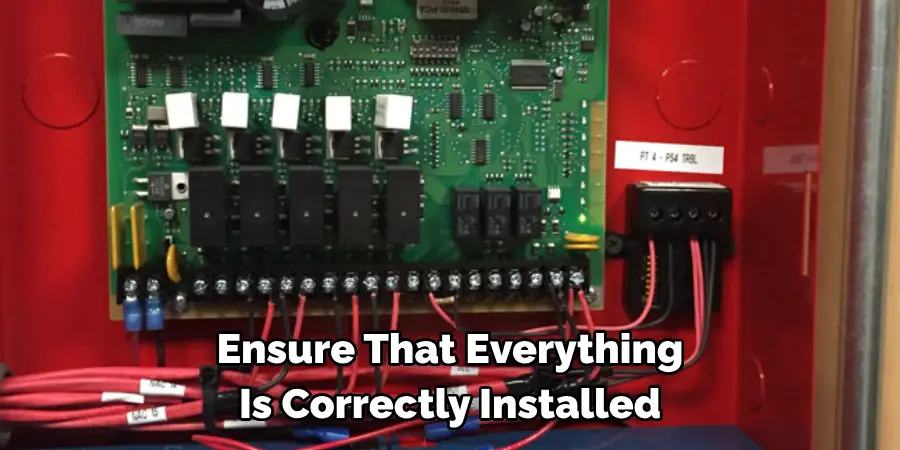
All wiring should be secured and kept away from combustible materials, and all connections should be properly insulated with the appropriate fire-resistant protection. Once everything is in place, it’s important to thoroughly test the system to make sure that it is working correctly.
What Type of Wiring Can Be Used for Fire Alarm Systems?
There are a variety of different wiring materials that can be used when installing fire alarm systems. The most common type is low-voltage wiring, which typically only requires two wires for communication between devices.
Other types of wiring may include shielded twisted pair, unshielded twisted pair or coaxial cables. It is important to use the correct type of wiring in order to ensure that the system is properly transmitted and received. Additionally, all wiring must also meet local codes for fire resistance.
What Are Common Issues When Wiring Fire Alarms?
When wiring a fire alarm system, it is important to make sure all components are securely connected and correctly wired. Poor connections can lead to inaccurate readings or false alarms, so special care should be taken to ensure everything is properly secured.
Additionally, any wiring that passes through walls must also be carefully sealed and insulated in order to prevent moisture or dust from impacting the system’s performance. Finally, it is important to make sure all wiring connections are properly labeled so as not to cause confusion during testing or maintenance procedures.
Conclusion
Now you know the basics of how to wire fire alarm system, it’s time to get started. With some basic knowledge and tools, you’ll be able to install your own alarms and ensure that they work correctly. But keep in mind that this is an important job to be done carefully and correctly; if you feel that the task is too much for you, consider hiring a professional contractor.
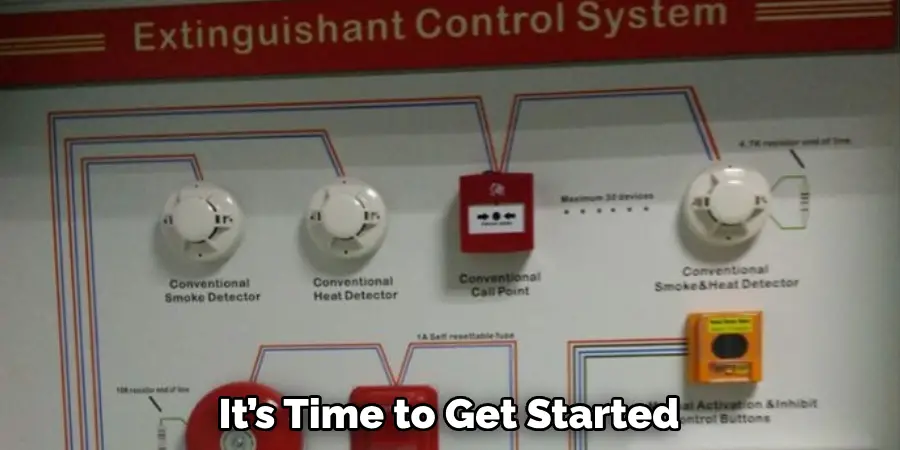
Knowledge truly is power when it comes to protecting your family and property from the dangers of fires. By understanding how fire alarms work and how to wire them, you are better equipped to help protect your home or business. Thanks for reading!
